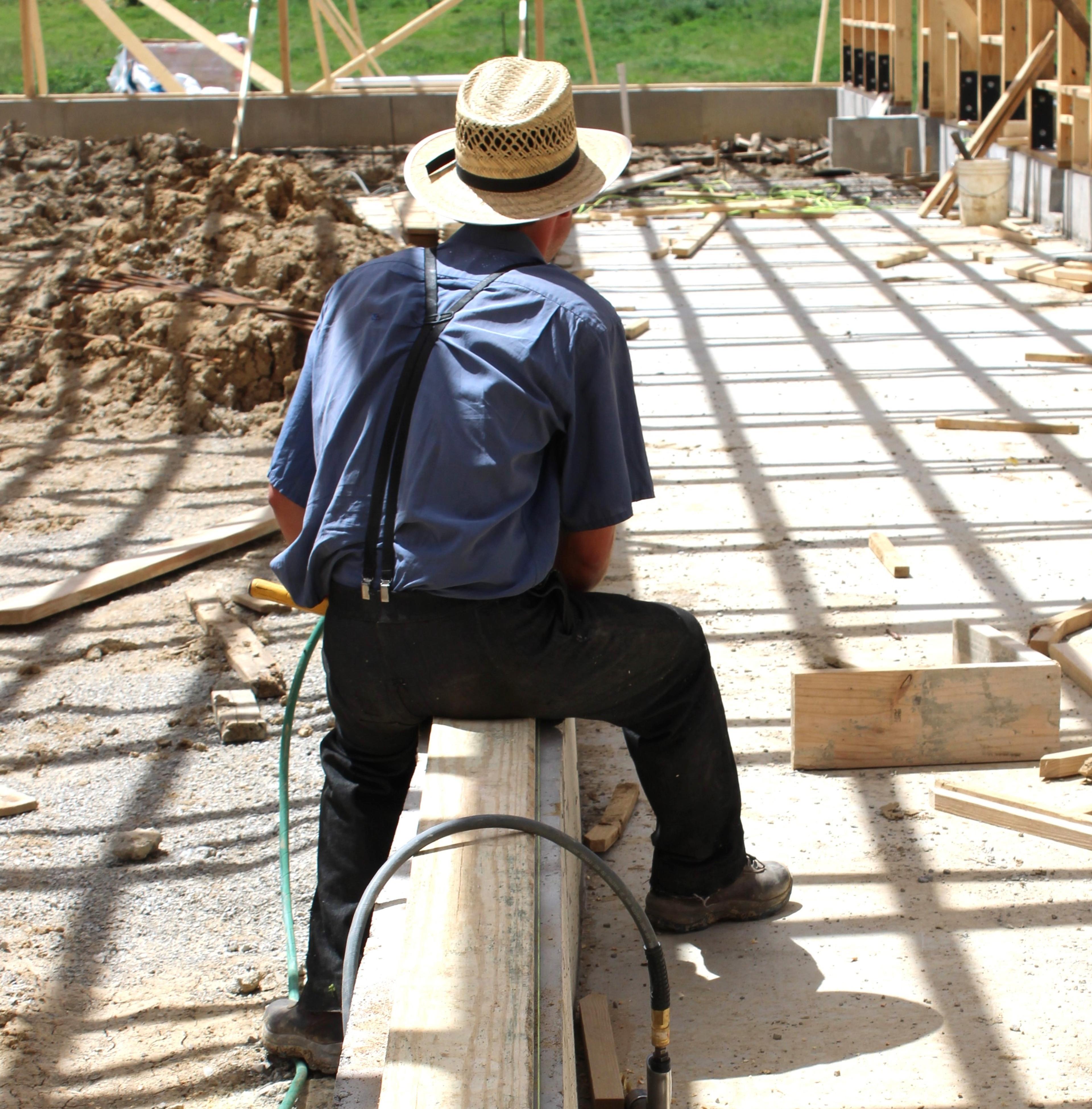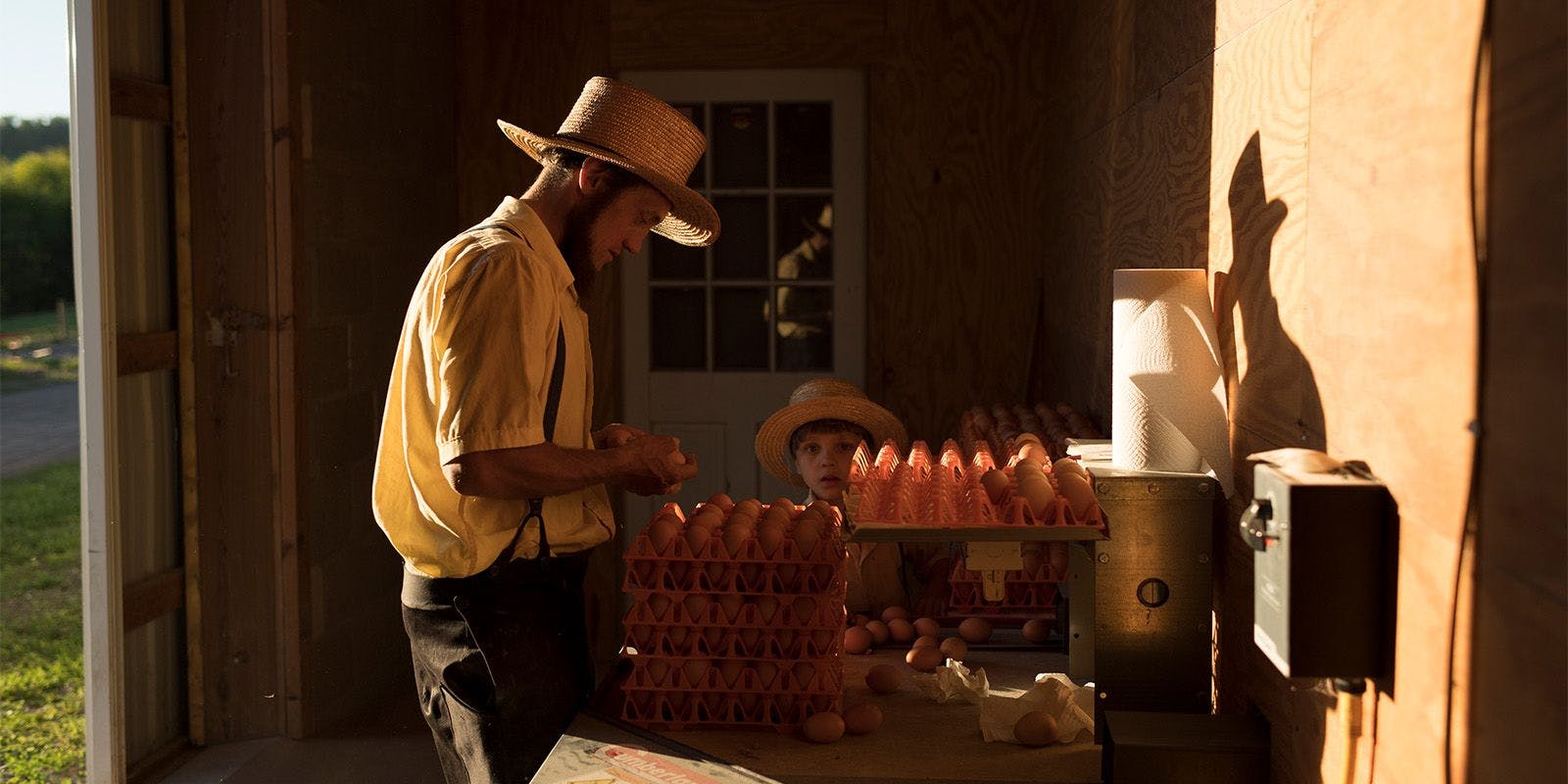
Farming
An Organic Egg Farmer Is Building a Better Way of Life
Many of us wake up and enjoy breakfast with family before rushing out the door. We get in the car, catch a bus or jump on a bike to get to work or drop off the kids.
The Kauffman family also has a busy morning, but it probably looks very different from yours. Larry Kauffman, the newest egg farmer to join Organic Valley, has a new routine that does not include leaving home.
Owners of Organic Valley’s more than 1,600 farms are paid a stable pay price, determined by farmers. Before Larry joined the co-op, he left home in the morning and went to a job making rafters to earn extra income.
Selling organic eggs allows Larry to spend more time on his small organic farm with his wife, Rachel and their three children, ages 2, 3 and 5.
“It is very much suited for family,” he said. “You gather eggs with the family around you. It’s not hazardous. It’s an economical way of earning an income, and it’s easy to do.”
Larry is continuing the family chicken-farming tradition on his small organic farm in southeastern Iowa.
He is co-partners with his father, David, and is taking over the flock (David still stays busy milking more than 200 goats). Since Larry started chicken farming in fall 2021, his dream has been to build a new chicken barn, and he is thrilled it is coming to fruition.
Larry has plenty of help building the barn. His father, cousin, a handful of his siblings and others are erecting the barn so he can expand his business from about 4,000 hens to 12,000. Though he is tripling the flock size, it is still a small flock compared to industrial farms that often house millions of chickens.
Iowa is the top egg-producing state in the U.S. with about 43 million laying hens. There were 5,352 total egg farms, conventional and organic, in Iowa in 2022, according to the most up-to-date USDA Census of Agriculture.
The crew started building the chicken barn in April and it will be done by Nov. 1, Larry said. How does he know that’s when the barn will be ready? Because the chickens are arriving Nov. 1 and it has to be done!

Eggs depict locations of Organic Valley egg farms in Iowa.
Small Organic Egg Farms
There are differences in raising laying hens on small family farms versus mega farms, Larry said. “Chickens get more attention on the smaller farms,” he said.
Organic Valley farms must follow USDA Certified Organic standards, but they also have their own Free to Forage™ standards. Hens must have access to fresh air, sunshine and organic pasture, which means their outdoor space must be free of toxic pesticides, herbicides and GMO plants. The hens are allowed to exhibit their natural behavior and are never caged.
The chickens always have access to water and shade, and they have hay to peck, scratch areas and places to dust bathe. There are perches for them to roost, too.
Organic Valley farmers consistently evaluate the health of their chickens. “There are funny little facts you pick up that you don’t get in a school science class,” Larry said. For example, the differing temperaments of chicken breeds.
The Kauffman family raises hy-line brown hens. Larry says they are social, outgoing and like attention. He can hold chickens in the palms of his hands, and the curious ones will peck his boots.
Larry regularly walks through the barn to ensure the birds are content and to understand their personalities. If the chickens are hungry, they come roaring to the feeder, and if they are sad, you can feel that as well, he said. A healthy, happy chicken will be walking around, gawking and rolling around in dust.

A helper works building a barn.
The Importance of Family and Farms
When asked, Larry could not think of one thing he dislikes about egg farming. “My goal is to be home with my family. Farming is centered around family,” he said.
Six Organic Valley egg farmers, including Larry’s uncle and cousin, are within 10 miles of the family. There are 17 Organic Valley egg farms in Iowa.
The Kauffman family collects eggs together (some better than others but proficiency will come with age and experience). A conveyor belt run by a generator brings the eggs into an egg-gathering room. The Kauffmans pick up every single egg, making sure the eggs meet Organic Valley’s high-quality standards. Gently filling the flats with eggs takes about an hour and a half.
Once the eggs are on flats and the chickens fed, the family heads in for the evening meal. While they eat and share stories of the day, the automatic lights go off in the chicken coop to ensure the hens get a good night’s sleep. Then it’s time for the Kauffman’s little ones to rest their tired eyes until morning brings a fresh day on the family farm.
An antique typewriter fanatic and chicken mom who treasures time outdoors admiring all that nature has to offer, Jennifer McBride is Rootstock’s editor. McBride spent 15-plus years as a journalist and newspaper editor before finding her niche with the nation’s leading organic dairy cooperative. Contact her at Rootstock@organicvalley.com.
Related Articles
- Tags:
- farm life


















